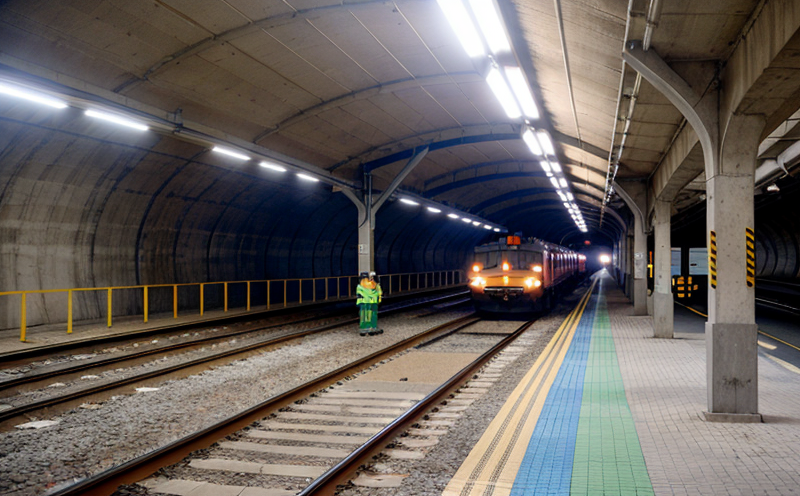EN 1090 Certification and Testing of Steel Bridge Components
The European Standard EN 1090 is designed to ensure that structural components used in construction meet stringent quality requirements. This certification process involves a series of rigorous tests on steel bridge components, focusing on the material properties, manufacturing processes, and final product quality.
Our service ensures compliance with EN 1090 by providing comprehensive testing services tailored to this standard. Our team of experts uses advanced equipment and methods to assess the metallurgical characteristics, mechanical properties, and structural integrity of steel components used in bridge construction.
The process begins with thorough examination of raw materials, ensuring that only high-quality steel is used for fabrication. This includes checking chemical composition, mechanical behavior under load, and resistance to corrosion. Once the materials are approved, the next step involves verifying the welding processes employed during production. Adherence to specified welding codes and practices is critical in maintaining structural integrity.
Post-fabrication testing ensures that all components meet the necessary standards before installation. This includes non-destructive testing (NDT) techniques such as ultrasonic testing and radiographic examination, which detect flaws without damaging the component. Additionally, mechanical tests are conducted to assess strength and durability under expected loading conditions.
Our team also provides detailed reports documenting each stage of the certification process, including test results and compliance status. These documents serve as proof that all components meet or exceed EN 1090 requirements, providing peace of mind for project stakeholders. By offering this service, we contribute to safer, more reliable infrastructure projects.
It is important to note that while EN 1090 addresses many aspects of steel component manufacturing and testing, it does not cover all potential issues encountered in real-world applications. Therefore, additional considerations may be necessary depending on specific project requirements or local regulations.
In summary, our EN 1090 certification service offers a robust framework for ensuring the quality and safety of steel bridge components through comprehensive testing and reporting. Whether you are an engineer designing complex structures or a manager overseeing procurement processes, this service provides assurance that only top-tier materials and methods are utilized in your projects.
Applied Standards
The European Standard EN 1090-1 specifies the requirements for the design, production, inspection, testing, and certification of steel structures, including bridges. This standard covers various aspects such as material selection, fabrication processes, welding methods, and final product quality checks.
EN 1090-2 focuses on additional specific requirements related to pressure equipment, while EN 1090-3 addresses the production and certification of steel products for offshore wind turbines. These standards work together to provide a comprehensive framework for ensuring high-quality construction materials across different applications within the railway and transportation sector.
Our testing laboratory adheres strictly to these international standards during every step of our EN 1090 certification process, guaranteeing that all produced components meet or surpass specified criteria. By doing so, we uphold industry best practices and contribute to safer infrastructure solutions.
Benefits
Guaranteed compliance with international standards like EN 1090, ensuring high-quality construction materials.
Rigorous testing procedures that detect potential flaws early in the manufacturing process.
Detailed reports documenting each stage of the certification process for transparent communication between stakeholders.
Enhanced safety and reliability of steel bridge components, contributing to longer-lasting infrastructure projects.
Reputation enhancement for manufacturers who demonstrate their commitment to quality through EN 1090 certification.
Reduced risk of costly rework or delays due to non-compliance with regulatory requirements.
Quality and Reliability Assurance
At our laboratory, we prioritize quality and reliability in every aspect of the EN 1090 certification process. Our team of qualified professionals applies their expertise to ensure that all steel bridge components meet or exceed the specified criteria.
We employ state-of-the-art testing equipment capable of detecting even minute flaws within materials and structures. This precision helps prevent costly errors during installation and operation phases, thereby enhancing overall project success rates.
Our commitment extends beyond mere compliance; we strive to continuously improve our methods through ongoing research and development efforts. By staying at the forefront of technological advancements in material science and manufacturing techniques, we ensure that our services remain relevant and effective for years to come.





